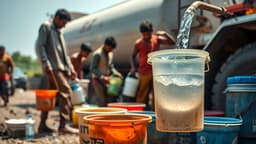Home / Environment / Deepavali's Plastic Pollution Problem: How India's Festival of Lights Is Drowning in Waste
Deepavali's Plastic Pollution Problem: How India's Festival of Lights Is Drowning in Waste
10 Oct, 2025
Summary
- India generates 1.6 lakh tonnes of municipal solid waste daily, with just over half processed
- Deepavali week sees sharp spikes in waste generation, with cities like Nashik and Vadodara reporting 20-750 tonne increases
- Food waste during festivals is a significant contributor, with Indian households wasting 55 kg per person annually

In the lead-up to Deepavali 2025, India's festival of lights, the country is grappling with a growing environmental challenge: the surge of waste generated during the celebrations. According to the Swachch Bharat Mission, India generates close to 1.6 lakh tonnes of municipal solid waste daily, with just over half of it being processed. The rest ends up in overflowing landfills or open dumps.
During the Deepavali week this year, several cities have reported significant spikes in waste generation. In 2023, Nashik collected more than 750 tonnes of additional garbage over the festive week, while Vadodara saw a 20% jump during the Navratri-Dasara stretch. This surge is driven by the increased use of packaging, food waste, and a rise in e-waste from low-cost electronics gifted during the celebrations.
Food waste is a silent but significant contributor, with Indian households wasting around 55 kilograms of food per person every year, much of it during festivals. Decomposing food emits methane, a greenhouse gas far more potent than carbon dioxide. Additionally, the country's plastic recycling rate remains low, at around 13%, making it difficult to handle the influx of laminated gift wraps, glossy chocolate boxes, and other non-recyclable packaging.
Experts argue that the time has come to align Deepavali gifting traditions with ecological responsibility. They suggest creating "Deepavali gifting codes" that promote sustainable packaging, useful gifts, and food waste reduction. Strengthening urban infrastructure, tightening policy on packaging standards, and using economic nudges can also help curb the environmental impact of the festivities. Ultimately, a shift in the cultural narrative, where thoughtfulness becomes the new status symbol, can lead to lasting change.




